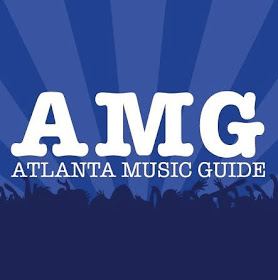The Fake That Sunk A Thousand Ships
Ramseur Records
By Ellen Eldridge
From the pencil-colored whale rising in a field of trees shaded by a multi-colored horizon on the album cover to the stylishly simplistic, silver-penned song titles, this Sam Quinn album, The Fake That Sunk A Thousand Ships, attracts. A sorrowful “Hello” starts the release, which truly acts as a catharsis expelled, and what more than a saddened sojourn would one expect from a man who signs his name with a zero for a Q? The one thing which stands out the most about Sam Quinn is his heartfelt sincerity; the idea that kicking someone in the groin will make him remember you more than a wide-mouthed smile full of pearly teeth.
The singular sentence, in his press release, where he describes having to explain his music to drunks, stands out in my mind because albums bent on self-reflection are easy to come by, but pure, honest feeling is tricky to do well without succumbing to cliché. The soulful swelling of the strings in the band soars to heights where one would expect a certain fear of falling. Quinn’s crooning rivals that of Thom York and his catharses release splashes onto the audience in an act of secret supplication; he wants us to feel just as bad as the narrator in these songs. The saddest part is that the lyrics to most of these songs will strike chords with most emotion-feeling humans and the squealing violins undulating beneath twangy guitars will tug at those heart strings like “smiling through pain.”
Something in the interior music to track four, “Suite Motown,” calls the memory of Jerry Garcia’s guitar to mind. The jam-band aspect tapped into a cosmic sense of duty and atmosphere drives this release.
Certainly, The Fake That Sunk A Thousand Ships is an undertaking for those who enjoy getting lost in trying to figure out the words behind such wailing cries; the anguish and passion implied in Quinn’s voice sucks the listener in and forces him to wonder just what hurt so much and just how it will make us each stronger.
Track six, “Gun,” resonates like an unstable dryer with its chorus. “I kill myself a little every night,” but something else inside the steady hi-hat drumming leaves just a little room for hope; that maybe killing our selves is the way to see this life full of trials through to a better result. Then again, the song is titled “Gun” which calls Kurt Cobain’s anguish to mind, despite the fact that the song is directed at someone else as the narrator acts as the gun.
The piano intro to “Late The Other Night” almost allows for a moment of levity, and even as the music plays to a more major scale sound, the vocals break along with the lyrics. The poetry exists in the symbiotic relationship between the music’s irony against two voices singing about a new beginning and “making it in my own time.”
This is the kind of music philosophy majors can mull over in their minds on breaks from school. The Fake That Sunk A Thousand Ships won’t be the happy-go-lucky-school’s-out summer album you might expect from a May release; this is more for the brooding minds who want to think of themselves as that rather than who. So, take the sojourn of self-reflection and see if you don’t feel like you’ve been kicked in the privates; you will remember the feelings running over you like the runoff of a wash where one man has cleansed himself of too much hurt.

[…] That Sunk A Thousand Ships, that much. Here is what Ellen Eldridge had to say about the album for Atlanta Music Guide […]